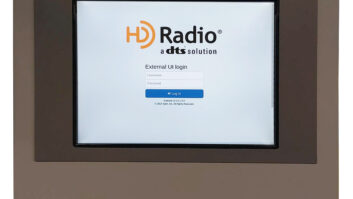It’s gotta suck to be a plastic straw manufacturer these days. Outrage against the plastic straw apparently started in 2015 with a viral video of a sea turtle getting a straw stuck up his cute little nose. This inspired “Entourage” star Adrian Grenier and his Lonely Whale Foundation to push for straws to be banned in Seattle and other cities.

What began as a small movement three years ago now has celebrities like Tom Brady speaking out against the straw. The Lonely Whale Foundation has announced a campaign sponsored by Bacardi titled, #TheFutureDoesntSuck, saying that the campaign will help eliminate 1 billion plastic straws by 2020.
I’m all in! I imagine most people will be. It’s clear that plastic pollution has become an increasingly alarming issue.
DO GOOD, DO WELL
What’s this got to do with radio? Well, this in-your-face campaign is a stark reminder of something that is rarely found on-air anymore. Some call it “issue advocacy.” Others refer to this potent force as “cause marketing.” In radio’s case, it means taking a stand on an issue that an audience can get behind.
Why should radio stations be proponents of specific do-gooder missions? Mainly, because doing good for society at large is important to our mission of serving the communities in which we live.
If that isn’t enough to motivate management, there are two things that happen when cause marketing is done well.
The first is the development and/or maintenance of audience loyalty, which — inevitably and somewhat crassly, I will admit — translates into ratings and long-term survival in format.
The second (are you listening, sales managers?) is additional sponsorship dollars that are obtained outside of day-to-day spot advertising. It might not have hit you at first, but look in the first paragraph to see what major liquor company is literally pouring investments into #TheFutureDoesntSuck.
Note that there is a vital difference between getting behind a cause and supporting a political candidate who is advocating for that initiative. It may seem subtle, but if a station explicitly promotes the election of one candidate or the defeat of another, you will be subject to federal campaign regulations.
If you feel it makes more sense to feature an on-air personality as the advocate for your cause, this also can work well. However, if this talent ever leaves your station, it will be challenging to continue a campaign so closely tied to that personality — who could then take it to another station in your city.
CHAMPIONING YOUR OWN CAUSE
What are some issues to think about? It’s hard to generalize, because there are problems that may be specific to your area.
For example, homelessness is a big issue in many cities, but perhaps nowhere bigger than in San Francisco. Could a station — or a group of stations — make fighting homelessness in the Bay Area their issue? No question. But it would indeed be challenging because the issue is so huge, and coming up with goals isn’t easy.
On the other hand, there are groups already tackling the problem and maybe what they need is the media power that one big station — or a group of stations — can provide on a year-round basis.
Finding the right issue takes research and careful analysis. Take your time. The issue must connect emotionally with the vast majority of your audience.
It’s supremely helpful if there is a group you can partner with, which can lend credibility to your effort and provide manpower when needed.
For radio, the most powerful issues will, of course, be local.
You must also think of the long term, looking perhaps five years out, so you have plenty of time to surpass whatever goals you set.
Let’s not kid ourselves: Issue advocacy isn’t for every radio station or group. But it’s the way to go for those stations with a vision for themselves and their communities.
Mark Lapidus is a longtime contributor to Radio World. Email him at [email protected].












